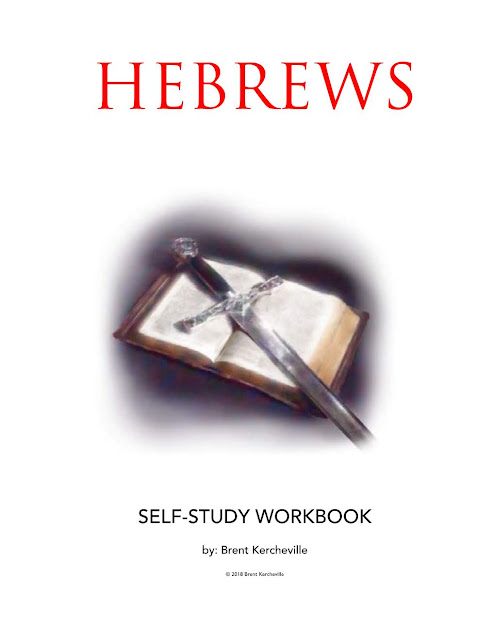Hebrews Chapter Nine Verses 11-18
HEBREWS CHAPTER NINE VS 11-18 (USING KING JAMES STUDY
TEXT, STUDY BOOK WILL REFERENCE A DIFFERENT VERSION FOR READING)
Heb 9:11 But Christ being come an high priest of good things to come, by
a greater and more perfect tabernacle, not made with hands, that is to say, not
of this building;
Heb 9:12 Neither by the blood of goats and calves, but by his own blood
he entered in once into the holy place, having obtained eternal redemption for us.
Heb 9:13 For if the blood of bulls and of goats, and the ashes of an
heifer sprinkling the unclean, sanctifieth to the purifying of the flesh:
Heb 9:14 How much more shall the blood of Christ, who through the eternal
Spirit offered himself without spot to God, purge your conscience from dead
works to serve the living God?
Heb 9:15 And for this cause he is the mediator of the new
testament, that by means of death, for the redemption of the transgressions that were under the first testament, they
which are called might receive the promise of eternal inheritance.
Heb 9:16 For where a testament is,
there must also of necessity be the death of the testator.
Heb 9:17 For a testament is of
force after men are dead: otherwise it is of no strength at all while the
testator liveth.
Heb 9:18 Whereupon neither the first testament
was dedicated without blood.
Main Point: See underlined contrast in verses 14/15. The wriere distinguishes the differences between the law of old (dead works), that must be dispensed for the new.
2. This
section contains a number of contrasts between the system surrounding the
tabernacle of old and the offering of Christ. List as many of these contrasts
as you can see that shows how better Christ is with His offering:
|
Old
Action
|
Old
Result
|
New
Action
|
New
Result
|
|
Tabernacle
|
Built by
men, only a foreshadow
|
New
Tabernacle
|
Built by
God –(thus) Perfect -
|
|
Entered
the holy place –through the blood of animals
|
Short term
atonement
|
Entered
into the tabernacle built by God – with
His own blood
|
Provides ETERNAL redemption
|
|
|
Purifying
the physical body
|
|
Transformed
to serve God
|
|
|
Short term
resolution
|
|
Receive
the promise of ETERNAL INHERITANCE
|
3. What
does verse 15 teach? “he is the mediator of
the new testament… for the redemption of the transgressions that were under the first testament”
First, he is the mediator (3319) – Go between
of a new testament (1242) disposition, or contract
Some teach this is how Jesus saves those
who have already died. That interpretation appears valid on first review. It
also eases the Christian mind to reconcile how it is that David or Moses might
end up with God in heaven. However, the context is speaking of covenants, not (necessarily)
of those under the covenants. It could also mean that what the first covenant
could not accomplish “redemption of the
transgressions that were under the
first testament”….the Covenant with Jesus DOES! Either interpretation is
valid. Note “that were” is added. It could dimply mean that the sins that the
old law could not redeem….Jesus can. Remember he just said that Jesus can save
to the UTTERMOST!
4. According
to this passage, when did the new covenant take affect? Why is this knowledge
important? (Read Barry Stephen’s
notes in the lesson book). The covenant is takes affect after the physical death
of Jesus, which would fit with the narrative of Jesus’ blood inaugurating the
need for a new – stronger - covenant. Even like the old covenant, blood was
required for its ratification. Barry’s notes show the issues with using the
word “will” in the physical sense. Jesus is still alive, a will speaks for the
dead, and that is just not the case for this new covenant.
Additional:
Redemption
– 3085 - From G3084; a ransoming
(figuratively): - + redeemed, redemption. – This has a few root words that
ultimately means “to loosen” ….
Purge – 2511 From G2513; to cleanse (literally or figuratively): - (make) clean (-se), purge, purify.
Purge – 2511 From G2513; to cleanse (literally or figuratively): - (make) clean (-se), purge, purify.
Conscience
– 4893 From a prolonged form of G4894; co-perception, that is, moral consciousness: (to
be aware)
Called
– 2564- Akin to the base of G2753; to “call” (properly aloud, but used
in a variety of applications, directly or otherwise): - bid, call (forth)
2573- Adverb from G2570; well (usually morally): - (in a) good (place),
2570 - Of uncertain affinity; properly beautiful, but chiefly (figuratively) good (literally or morally), that is, valuable or virtuous
2573- Adverb from G2570; well (usually morally): - (in a) good (place),
2570 - Of uncertain affinity; properly beautiful, but chiefly (figuratively) good (literally or morally), that is, valuable or virtuous
Inheritance
– 2817- From G2818; heirship,
that is, (concretely) a patrimony or (generally) a possession: - inheritance.- Root words – inherit by lot
Testament
– 1242 – disposition – contract from 1303
Testator
-1303 middle voice from G1223 and G5087; to put apart, that is,
(figuratively) dispose (by assignment, compact or
bequest): - appoint, make, testator.
Do you remember how the Hebrew understands redemption and its application to physical life? Now, how does the term “inheritance” bring an even heavier…more beautiful message?

Comments
Post a Comment